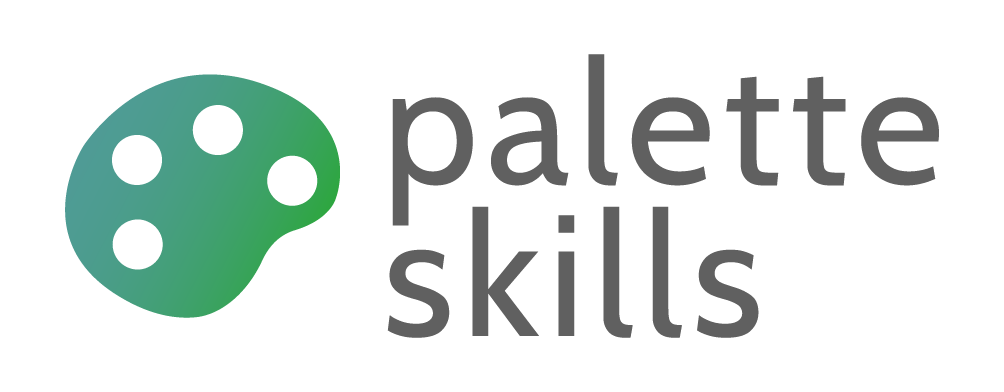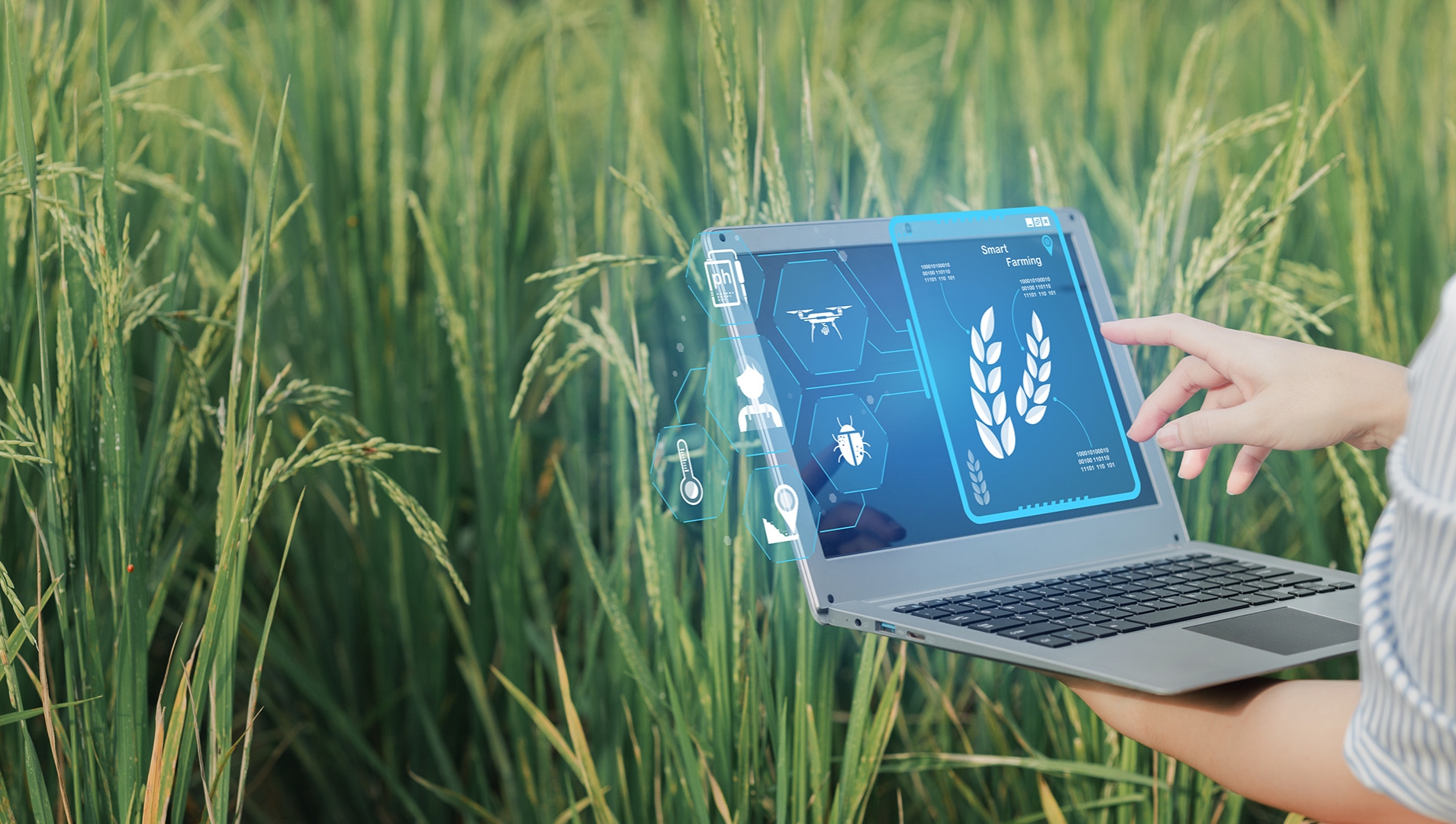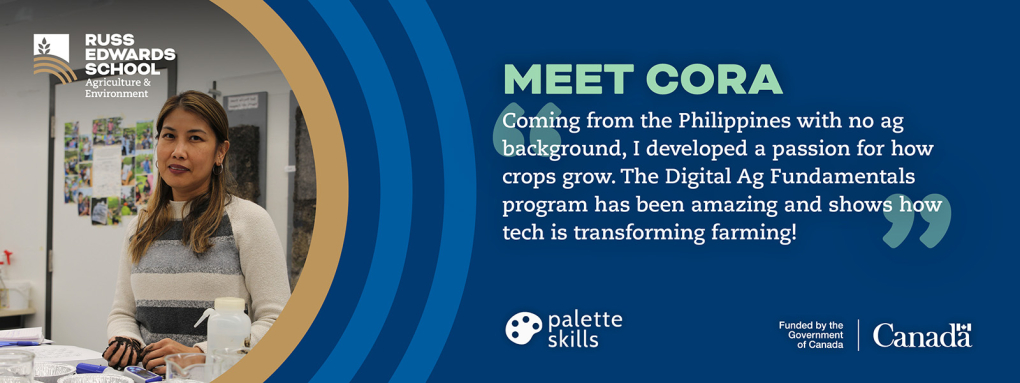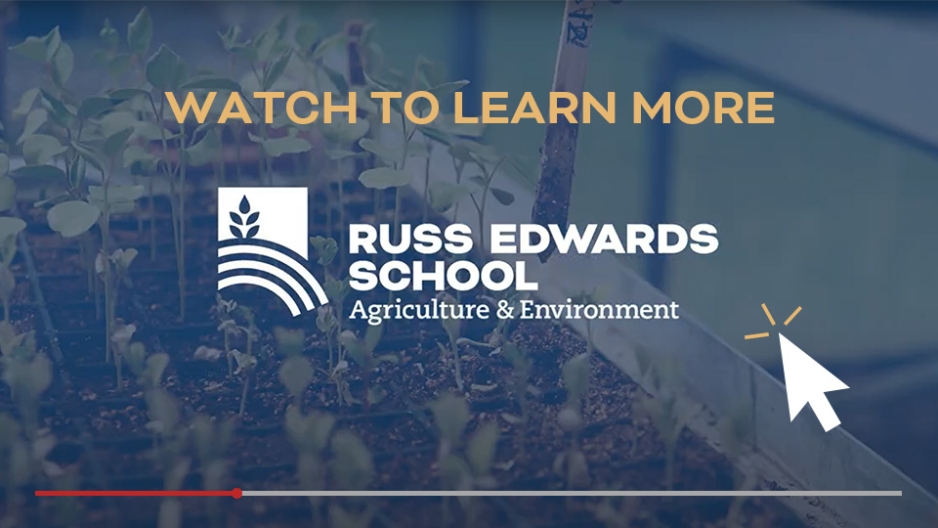Digital Agriculture Fundamentals
Overview
Prepare yourself for a dynamic, fast-paced upskilling program that blends theory with hands-on experience to equip you for the future of agriculture. This is a blended delivery eight-week program with live and asynchronous learning, taking place primarily online.
Led by industry experts, you’ll explore cutting-edge technologies such as GIS, IoT, drones, AI, robotics, and autonomous machinery. Alongside foundational knowledge of Western Canadian agriculture, you’ll analyze how digital advancements are transforming the industry. From production best practices to precision agriculture and digital business management, each module applies core concepts to real-world agricultural scenarios.
This program not only builds essential sector knowledge but also enhances career skills, preparing you to transition into new roles in the evolving field of agriculture. By the end, you’ll be ready to integrate both digital and traditional agricultural practices for impactful work within the sector.
Admissions
Admission Requirements
- Interview to assess technical and professional skills
- Upload of the confirmation of eligibility letter provided further
English is the language of instruction at Assiniboine. All applicants educated outside of Canada or in a country not on the test-exempt list are expected to meet the English language proficiency requirements.
READY TO TAKE THE NEXT STEP IN YOUR EDUCATION JOURNEY?
Start your online application today and join Assiniboine College! Please visit the Palette Skills website for more information on admission requirements and to pre-apply for the program.
Careers & Connections
Careers
The Digital Ag Fundamentals program goal is to get highly skilled workers ready to hit the ground running, by giving them the tools they need to identify, manage, and implement technological solutions across the agri-food value chain in the Prairies. Embrace a role where data, automation, and advanced tools transform traditional agriculture for a more resilient future.
Connections
Assiniboine has a number of agreements with other colleges, universities and professional organizations, making it possible to apply credit taken at Assiniboine to programs at other institutions. For information on agreements, visit the Articulation Agreements page.
Tools & Supplies
Technology Requirements
All of our programs require the use of a computer with internet access. Some resources may be available on campus. For more details, visit our At-Home Computing page.
Courses & Costs
Costs
Tuition, fees and Students’ Association fees total approximately $150.00.
All fees are estimated and are subject to change without notice.
For more information, visit the Fees and Charges page.

Funding for this program provided by Palette Skills.

Courses
To graduate with a Digital Ag Fundamentals Associate Certificate, students must successfully complete 12 academic credits.
Introduction to Digital Ag (AGRC-0322) | 1.5 credits
This course introduces students to the role of technology in advancing the agriculture industry, encouraging them to understand key concepts such as GPS, AI, IoT, and robotics. Students analyze and evaluate the impact of these innovations on farming practices, sustainability, and food production systems. They also apply their knowledge to assess the benefits and challenges of emerging technologies, focusing on their economic, social, and environmental effects on agricultural operations.
Ag Production Best Practices (AGRC-0321) | 3 credits
In this course, students gain an understanding of the crop production cycle on the prairies, including weather, soil, and moisture factors, and apply this knowledge to evaluate genetic and management influences on oilseed, cereal, and pulse crop yields. Learners examine the importance of seed selection and agronomic practices, along with pest and crop health monitoring. Throughout the course students explore strategies using emerging technologies to improve sustainability and productivity in prairie farming systems.
Soil Management (AGRC-0324) | 1.5 credits
This course focuses on understanding the physical, chemical, and biological properties of prairie soils and their influence on crop production. Students apply this knowledge to analyze soil variability, evaluate lab results, and make informed recommendations for fertility and seed use. Learners will also create and design 4R nutrient management plans, ensuring optimized crop growth and sustainability across various soil types.
Precision Ag (AGRC-0323) | 1.5 credits
This course introduces students to the principles of precision agriculture, encouraging them to understand and apply technologies like DGPS, GIS, and intelligent devices. Utilizing precision tools and analyzing spatial data and software to make data-driven decision students create maps, determine variable rate applications for nutrient management. Practical skills in troubleshooting and guidance system implementation aid students in creating GIS-based maps to enhance sustainable agricultural practices.
Digital Ag Tools & Technology (COMP-0662) | 3 credits
This course provides an in-depth exploration of the Internet of Things (IoT) and its applications in agriculture, helping students understand IoT architecture, device programming, and communication protocols. Through analysis and evaluation of the integration of AI, machine learning, robotics, and UAVs students gain skills to optimize farm operations. Through hands-on examples, students apply IoT solutions to create strategies that enhance decision-making and operational efficiency in agriculture.
Career Skills & Job Readiness (PEDV-0396) | 1.5 credits
This course focuses on preparing students for the job market in digital agriculture, helping them understand essential career-building tools such as employment profiles, resumes, and cover letters. Students will apply their skills through mock interviews and implement networking strategies, rural job searching, and career paths in digital agriculture. Upon conclusion of the course, students have created personalized networking and job search plans, positioning themselves for success in the field.
FAQs
How do I register for the Digital Ag Fundamentals program?
You must apply online with Palette Skills and be accepted into the Digital Ag Fundamentals program to be eligible to register for program courses.
What are the start dates and costs for Digital Ag Fundamentals?
The courses in this program start on September 15, 2025.
For cost information, view the 'Courses & Costs' tab.
Digital Ag Fundamentals is blended delivery, what does that mean?
This program is delivered primarily online over eight weeks with live and asynchronous lessons. A full-time instructor and a student support staff are available. There are 3-4 days of in-person instruction with the location to be determined. Mileage costs may be covered for approved students.
What is the structure of the Digital Agriculture Fundamentals program?
The program requires approximately 15 hours a week of live, online participation, and an additional 5-10 hours a week of asynchronous learning. In the later weeks of the program, there are typically 3-4 in-person workshops that take place over a full day. The program is designed to allow you to continue with your current employment while you learn.
What portions of the program are in person and which are online?
The program will be mostly online; workshops & lectures will be online. There will be in-person sessions for hands-on training and networking opportunities. You will be notified ahead of time for the in-person activities.






